Top 6 Most Powerful Taliban Leaders Today
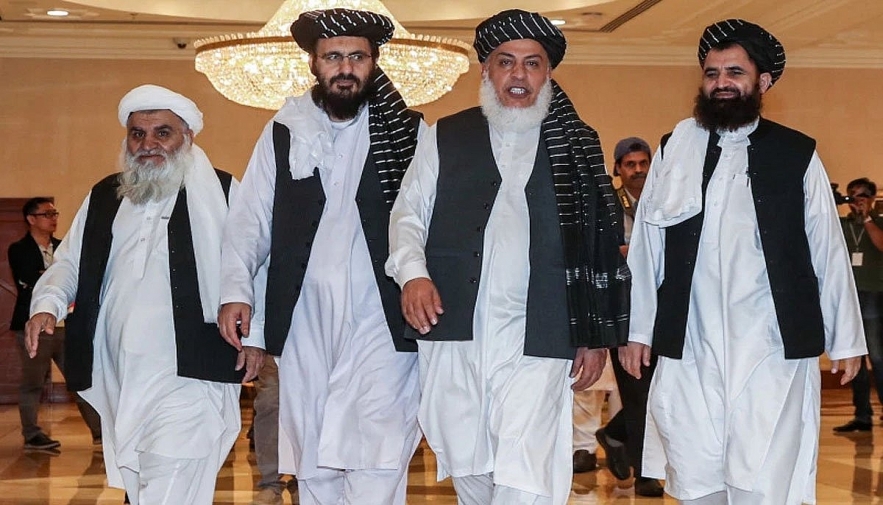 |
| Top 6 Most Powerful Taliban Leaders Today - Who Are & Personal Profile |
The Taliban was on the brink of total victory in Afghanistan on Sunday, with its fighters ordered to wait on the outskirts of the capital and the government conceding it was preparing for a "transfer of power".
Since the Taliban were ousted by a US-led military coalition after the 9/11 attacks of 2001, Afghanistan’s capital has been transformed into a bustling, crowded, traffic-choked metropolis of 5 million. The rest of the country has changed immensely too. The Taliban task facing the new de facto head of state is vastly more challenging and complex.
Who Are the Most Powerful Taliban Leaders in Afghanistan Today - Biography, Personal Profile
1.Haibatullah Akhundzada, the supreme leader
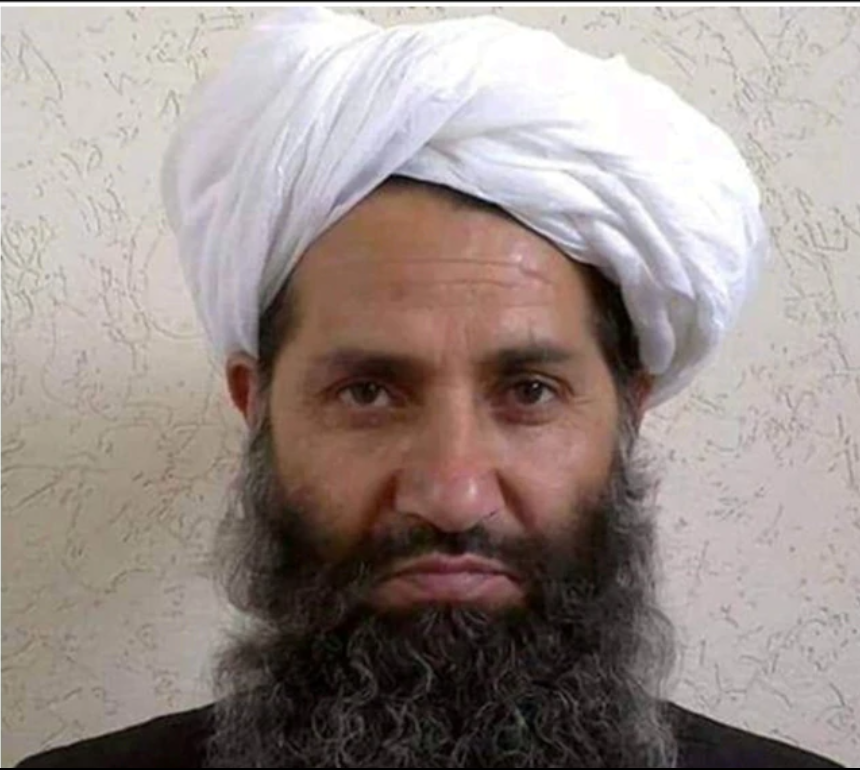 |
Taliban leader Mullah Haibatullah Akhundzada is seen in an undated photograph, posted on a Taliban twitter feed on May 25, 2016. (Photo: Reuters) |
The most likely candidate is the current supreme leader of the Taliban, Haibatullah Akhundzada, a 60-year-old Islamic legal scholar who took over when his predecessor, Akhtar Mansour, was killed in a US drone strike near the Afghan-Pakistan border in 2016.
Akhunzada grew up in Panjwai, a district just outside Kandahar. Like most of the Taliban’s senior leaders, he is Pashtun, Afghanistan’s largest ethnic community and one which has historically claimed the right to rule the country.
During the 1980s, Akhunzada fought the Soviets and their local auxiliaries near his home with brigades of young religious students and clerics which later formed the nucleus of the Taliban. He also studied in religious schools in Afghanistan and neighbouring Pakistan, was the primary religious “adviser” of mullah Omar, and eventually reached the status of sheikh ul-hadith as an outstanding scholar.
Haibatullah Akhundzada was appointed leader of the Taliban in a swift power transition after a US drone strike killed his predecessor, Mullah Mansour Akhtar, in 2016.
Before ascending the movement's ranks, Akhundzada was a low-profile religious figure. He is widely believed to have been selected to serve more as a spiritual figurehead than a military commander.
After being appointed leader, Akhundzada secured a pledge of loyalty from Al Qaeda chief Ayman al-Zawahiri, who showered the religious scholar with praise -- calling him "the emir of the faithful".
Akhundzada is believed to be in his 60s and has lived most of his life in Afghanistan.
However, according to experts, he maintains close ties with the so-called "Quetta Shura" - the Afghan Taliban leaders said to be based in the Pakistani city of Quetta.
As the group's supreme commander, Akhundzada is in charge of political, military and religious affairs.
| In recent decades, Akhunzada has been the Taliban’s top religious judge, resolving thorny issues such as the legitimacy of suicide attacks, or whether it is right to fight the Islamic State as the group sought to establish a presence in Afghanistan. He also taught the most complex and prestigious texts in religious schools. Known for his personal austerity, Akhunzada was a compromise candidate when promoted to “emir” over the heads of dozens of other better-known leaders by the Taliban’s supreme leadership council in 2016. His tribal background, reputation as a scholar and the respect commanded by his erudition were all advantages. |
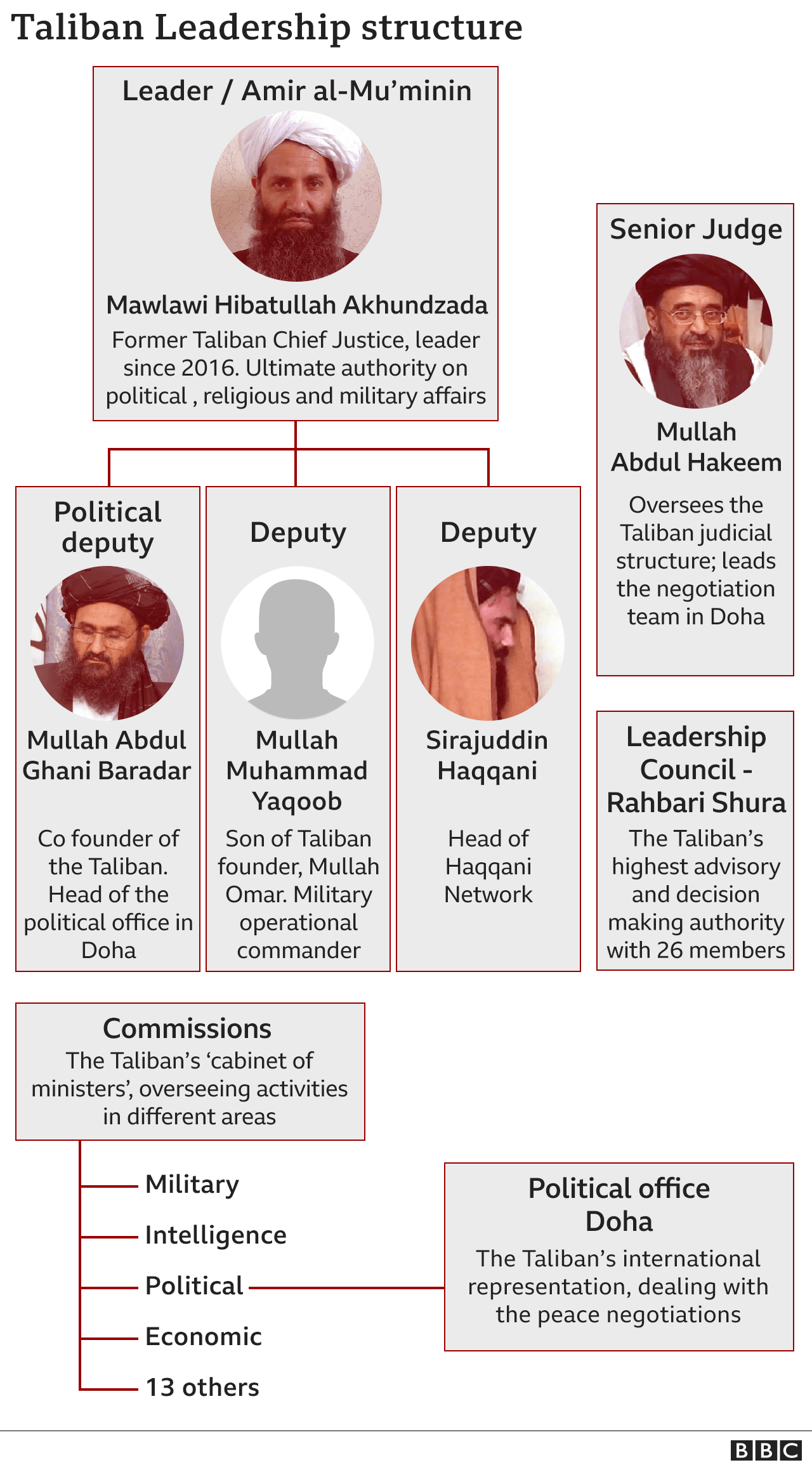 |
| The Taliban’s leadership structure |
2. Abdul Ghani Baradar, The Founder, Political Leader and Next Afghanistan President
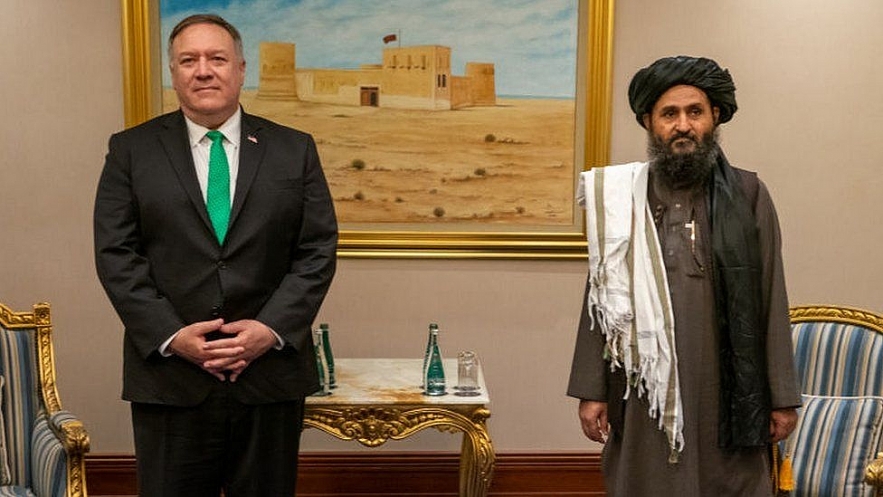 |
| Then US Secretary of State Mike Pompeo and Abdul Ghani Baradar met in September 2020 in Doha- Getty |
Mullah Abdul Ghani Baradar is one of the four men who founded the Taliban in Afghanistan in 1994. He became a lynchpin of the insurgency after the Taliban were toppled by the US-led invasion in 2001.
Baradar was among the few dozen original members of the Taliban, and currently heads the group’s political office. His name means “brother” and was conferred by Mullah Omar himself as a mark of affection.
Abdul Ghani Baradar was raised in Kandahar -- the birthplace of the Taliban movement.
Like most Afghans, Baradar's life was forever altered by the Soviet invasion of the country in the late 1970s, transforming him into an insurgent. He was believed to have fought side-by-side with the one-eyed cleric Mullah Omar.
The two would go on to found the Taliban movement in the early 1990s amid the chaos and corruption of the civil war that erupted after the Soviet withdrawal.
Following the Taliban's collapse in 2001, Baradar is believed to have been among a small group of insurgents who approached interim leader Hamid Karzai with a letter outlining a potential deal that would have seen the militants recognise the new administration.
He remained in prison for eight years, until he was released as part of a plan to facilitate the peace process. He has been the head of their political office in Qatar since January 2019.
Arrested in Pakistan in 2010, Baradar was kept in custody until pressure from the United States saw him freed in 2018 and relocated to Qatar.
This is where he was appointed head of the Taliban's political office and oversaw the signing of the withdrawal agreement with the Americans.
In 2020, Baradar became the first Taliban leader to communicate directly with a US president after having a telephone conversation with Donald Trump.
Today, Abdul Ghani Baradar is the main political leader of the Taliban. and likely to become new Afghanista President.
RELATED: Who is Taliban Leader Abdul Ghani Baradar, likely to be next Afghanistan President
3. Mohammad Yaqoob, The Scion, Son of Omar
Mohammad Yaqoob is the son of the founder of the Taliban, Mullah Mohammed Omar. He is believed to be little more than 30 years old and is currently the leader of the group's military operations.
According to the local press, Yaqoob lives in Afghanistan.
Mullah Yaqoob heads the group's powerful military commission, which oversees a vast network of field commanders charged with executing the insurgency's strategic operations in the war.
His lineage and ties to his father -- who enjoyed a cult-like status as the Taliban's leader -- serves as a potent symbol and makes him a unifying figure over a sprawling movement.
However speculation remains rife about Yaqoob's exact role within the movement, with some analysts arguing that his appointment to the role in 2020 was merely cosmetic.
4. Sirajuddin Haqqani - The Haqqani Network
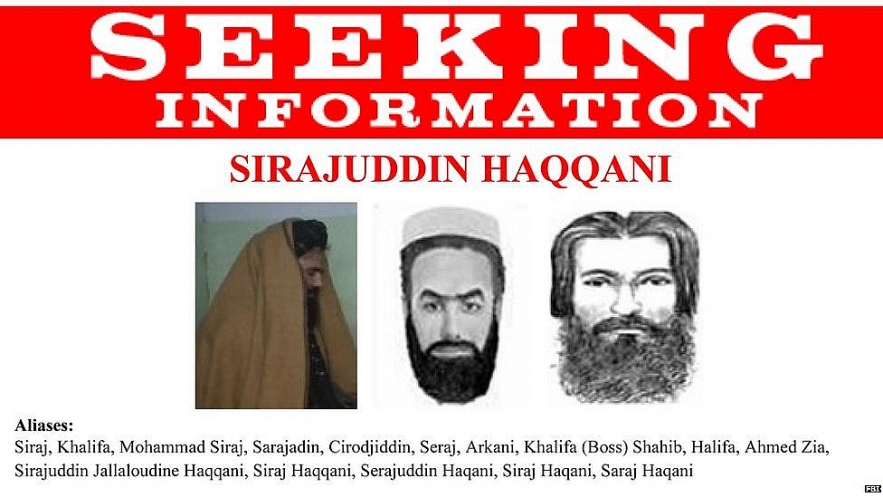 |
| The Haqqani network is currently one of the most powerful and feared militant groups in the country |
The son of the famed commander from the anti-Soviet jihad, Jalaluddin Haqqani.
Sirajuddin doubles as both the deputy leader of the Taliban movement while also heading the powerful Haqqani network.
Sirajuddin Haqqani is another of the group's top deputy leaders. After the death of his father, Jalaluddin Haqqani, he became the new leader of the Haqqani network, which has been credited with some of the most violent attacks that have occurred in Afghanistan against Afghan forces and their Western allies in recent years.
The Haqqani network is currently one of the region's most powerful and feared militant groups. Some say it is even more influential than the Islamic State group in Afghanistan.
The Haqqani Network is a US-designated terror group that has long been viewed as one of the most dangerous factions fighting Afghan and US-led NATO forces in Afghanistan during the past two decades.
The group is infamous for its use of suicide bombers and is believed to have orchestrated some of the most high-profile attacks in Kabul over the years.
The network has also been accused of assassinating top Afghan officials and holding kidnapped Western citizens for ransom -- including US soldier Bowe Bergdahl, released in 2014.
Known for their independence, fighting acumen, and savvy business dealings, the Haqqanis are believed to oversee operations in the rugged mountains of eastern Afghanistan, while holding considerable sway over the Taliban's leadership council.
Haqqani is believed to be around 45 years old and his whereabouts are unknown.
| "We did not choose our war with the foreign coalition led by the United States. We were forced to defend ourselves." "We will remain committed to all international conventions as long as they are compatible with Islamic principles. And we expect other countries to respect the sovereignty and stability of our country and consider it as a ground for cooperation rather than competition and conflict." - Sirajuddin Haqqani had said in an opinion column published in The New York Times in 2020 |
5. Abdul Hakeem - Council of Religious Scholars
In September 2020, the Taliban appointed Abdul Hakeem as the new head of the Taliban negotiating team in Doha.
He is believed to be around 60 years old. He reportedly ran a madrassa - an Islamic religious school - in Quetta, Pakistan, from where he also supervised the judiciary of the Taliban.
Many senior Taliban leaders reportedly took refuge in Quetta, from where they led the group.
But Islamabad has denied the existence of the "Quetta Shura".
Hakeem also heads the Taliban's powerful council of religious scholars and is believed to be one of the people closest to the supreme commander, Akhundzada.
6. Rahbari Shura - Council of Leadership
The Rahbari Shura is the top council of leadership, which has the final say on any political matters within the Taliban. According to reports, Haibatullah Akhundzada has to take the consensus of the Shura before any major decisions. The collegial leadership model is a step away from the autocratic rule adopted by Mullah Omar, who was taking all the key decisions.
Also known as the Quetta Shura after the Pakistani city where Mullah Omar had allegedly taken refuge following the US invasion, the Rahbhari Shura is largely responsible for key political and military decisions taken by the Taliban. According to the Council on Foreign Relations, the Shura oversees various commissions, similar to the ministries in place prior to the Taliban’s overthrow, and administrative organs through which the Taliban operate a shadow government.
The commissions include economics, education, health, and outreach sectors apart from appointing shadow governors and battlefield commanders.
*Note: The Taliban leader's public profile has been largely limited to the release of annual messages during Islamic holidays.
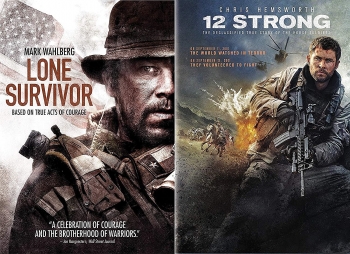 What Are The Best Movies on Taliban and Afghanistan What Are The Best Movies on Taliban and Afghanistan To get a better understanding of Taliban and the war-torn Afghanistan's situation today, here are the top 14 best movies you can watch right now. |
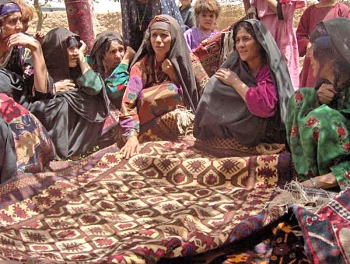 20 Amazing Facts About Afghanistan 20 Amazing Facts About Afghanistan Only in Afghanistan: It is a landlocked country, somewhere in the middle of Central and South Asia. It has a violent history. |
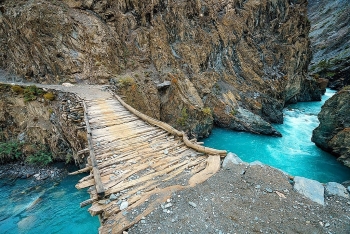 Top 10 Most Beautiful Places in Afghanistan Top 10 Most Beautiful Places in Afghanistan Taliban takes control of Kabul's presidential palace and Afghanistan. Would you like to visit the Top 10 Most Beautiful Places in this country? |























